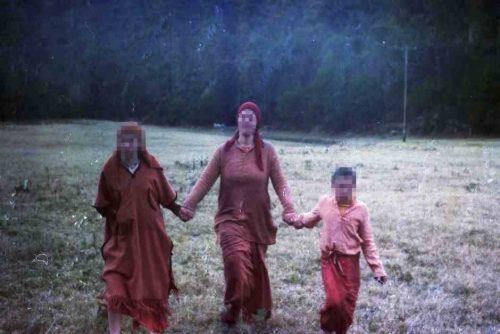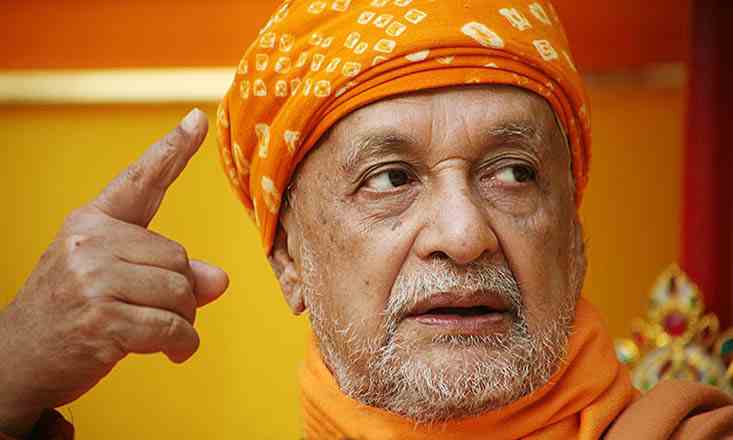Case Study 21 – the response of Satyananda Yoga Ashram at Mangrove Mountain NSW in response to allegations of child sexual abuse by ashram’s former spiritual leader in the 1970s and 1980s, released today noted that there were significant barriers for child victims to disclose sexual abuse to adults or peers.
Sydney, September 14: The Royal Commission’s report follows a public hearing in December 2014 and oral submissions in April 2015, which explored the experiences of 11 survivors of child sexual abuse at or connected with the ashram, and the response of the ashram to that child sexual abuse.
Satyananda Yoga Ashram was established in the early 1970s, and from about 1974 was overseen by Swami Akhandananda Saraswati.
In 1989, Akhandananda was arrested on charges of child sexual abuse and was sentenced in 1989 to two years and four months imprisonment.
Residents, including up to 22 children at any one time, followed the key philosophies and practices of Satyananda Yoga, which were based on the principles of the guru-disciple relationship and development of mind, body and spirit.
Shortly after his arrival, Akhandananda began a sexual relationship with 17-year-old “Shishy”, who through this relationship became second-in-charge at the ashram.
Akhandananda and Shishy remained together in a sexual relationship, albeit an increasingly violent one, until the end of 1985.
The Royal Commission received evidence from 11 adults, ten of whom were female, who reported that they were sexually abused as children living at the ashram.
The Royal Commission heard that a number of the survivors of abuse were sexually abused by Akhandananda on overnight trips to other ashrams and/or were summoned to his private room at the ashram to massage him and then to perform oral sex on or have sexual intercourse with him.
The report notes that there was no evidence of any child protection policy or procedure in place at the ashram between 1975 and 1989.
The Royal Commission heard from several former residents of the ashram who gave evidence of the culture of physical abuse and public humiliation at the ashram, including severe beatings and threats of harm meted out by both Akhandananda and Shishy.
Commissioners were satisfied that “the Satyananda yoga doctrine in Australia at the time, and as interpreted by Akhandananda together with the particular belief system and culture at the Mangrove ashram, created significant barriers to the capacity of child victims of Akhandananda’s sexual abuse to disclose to adults or peers…”
These barriers included
- isolation from mainstream community services,
- separation from parents, and
- cult-like dependence of a number of children on Shishy. Additional barriers were
- fear of reprimand and
- devotion to the guru-disciple relationship, which culminated in a complete and unquestioning trust in the erratic and irrational actions and directions of Akhandananda as the guru.

Commissioners concluded that it is unlikely that any of the child sexual abuse survivors were consulted in the formulation of a Survivor Support Pack offered to them in 2014, and that the Survivor Support Pack was ill-conceived and of little or no apparent assistance.
Further, Commissioners also found that at the onset of the Royal Commission’s investigation; the Bihar School of Yoga in India – the spiritual headquarters of the Satyananda Yoga movement; were primarily concerned about minimising the damage to the reputation of Satyananda yoga, rather than the sexually abused children.
“The Bihar School of Yoga’s response did not properly prioritise the welfare of survivors over the interests of the ‘brand’ of Satyananda yoga,” the report states.
Commissioners also considered that during the public hearing, the Mangrove Mountain ashram adopted an approach that was at times insensitive, defensive and legalistic.
Ramakrishna VenuGopal
Similar Posts by The Author:
- BAPS temple vandalism critic Canadian MP Chandra Arya on Pannu’s radar
- Dutton asks Albanese to sack Andrew Giles
- Victorian Liberals and Nationals demand Royal Commission into CFMEU misconduct under Labor
- Peter Khalil welcomes more funding for emergency accommodation and support for women and children in Wills
- Dogged Vic government powering ahead with the Suburban Rail Loop

